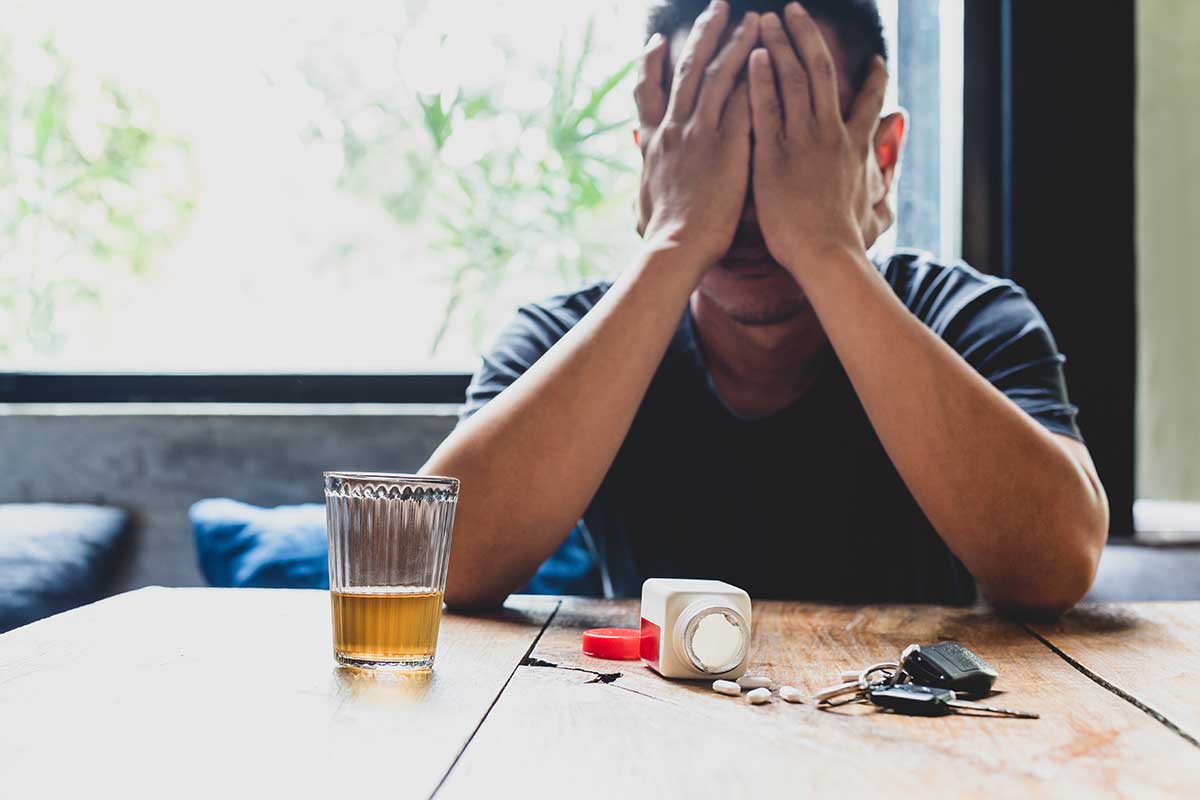It’s natural to wonder if depression and addiction are connected. Frequently, when one condition is present, the other follows. However, it’s not very useful to expend energy attempting to figure out which came first or which condition caused the other. The key when dealing with depression and addiction to treat both conditions simultaneously, so the individual fully heals. When a depressive disorder (or any mental health issue) is present with substance use disorder or addiction, medical professionals refer to this as having a co-occurring disorder. The best way to deal with co-occurring disorders is through dual diagnosis treatment, which addresses addiction and the underlying mental health issues an individual is enduring.
At Insight Into Action Therapy, our counselors and therapists are experts in helping clients address their mental health issues while also working through their substance abuse. Our methods can help clients identify and resolve their problems before substance use disorder worsens, requiring residential treatment.
Depression and Addiction
Depression is more than merely feeling sad or disappointed. Rather, it is a mood disorder characterized by a persistent sense of hopelessness lasting for several weeks or months, affecting every aspect of life. Some signs of depression include:
- Irritability
- Feelings of guilt, worthlessness, or helplessness
- Loss of interest or pleasure in hobbies and activities
- Restlessness
- Difficulty concentrating, remembering, or making decisions
- Sleep issues like insomnia or unexplained fatigue
- Thoughts of death or suicide
These signs will vary from individual to individual, and not everyone will evince every sign or symptom. However, the discomfort from these symptoms frequently leads individuals to look for relief. Often, this self-medicating takes the form of abusing drugs or alcohol. While substance use can mask the pain or discomfort arising from depression, it allows the mental health condition to worsen. This prompts people to abuse drugs or alcohol more, putting them at extremely high risk of developing an addiction.
Once an individual is addicted, they need treatment for substance use disorder. However, leaving the underlying depression untreated means the individual will most likely relapse. Both conditions must be treated for the individual to heal. To do so, clients need a dual diagnosis treatment program to address their co-occurring disorder.
How Dual Diagnosis Treatment Helps
Upon entering dual diagnosis treatment, clients will be evaluated by our team of compassionate and experienced counselors and therapists at Insight Into Action Therapy. Together, we’ll develop a treatment plan with clearly defined goals and discuss the appropriate therapeutic approach. For some, this may mean cognitive-behavioral therapy (CBT), and for others, it may be acceptance and commitment therapy (ACT) that would be most effective. Similarly, some individuals respond best to group therapy, while others prefer the intimacy and confidentiality of one-on-one individual therapy. No matter the approach, our experts will help clients identify the triggers of both their addiction and mental health issue. Clients will learn techniques to confront and overcome their issues, create a healthier environment for themselves and others, and practice positive coping mechanisms.
Insight Into Action Therapy
When someone struggles with mental health issues like anxiety or depression, it is very easy to abuse drugs or alcohol to self-medicate. Often, this happens unwittingly, and individuals discover they have a substance use disorder. Similarly, when an individual struggles with a substance use disorder, they are at a higher risk of developing a mental health issue. Depression and addiction are two conditions that spring from one another and worsen each other. Therefore, it’s vital when someone shows the signs of either to seek professional help to heal. Fortunately, at Insight Into Action Therapy, our dual diagnosis treatment, as well as our other treatment programs, can give individuals the support they need to heal from both conditions and prevent either from arising. Reach out to us today at 703.935.8544 to learn more about our programs and treatments so you or a loved one can begin the healing process.







